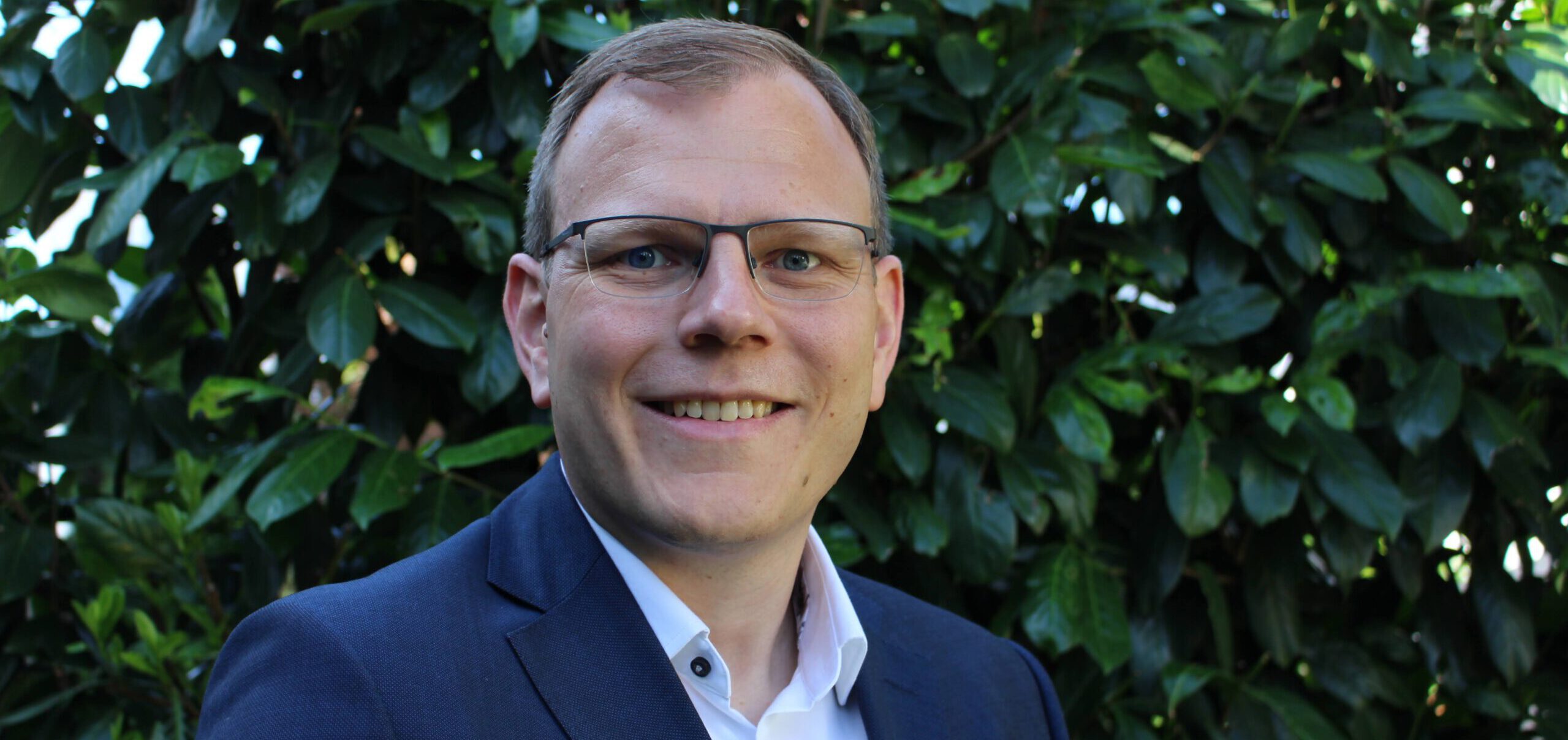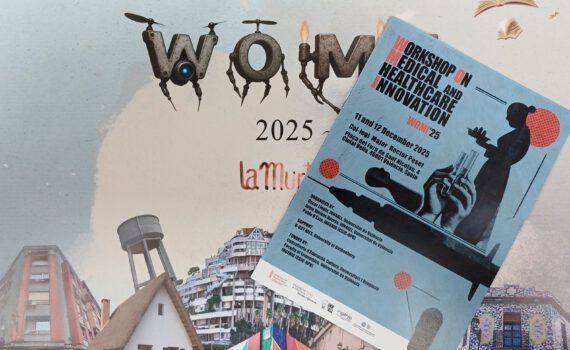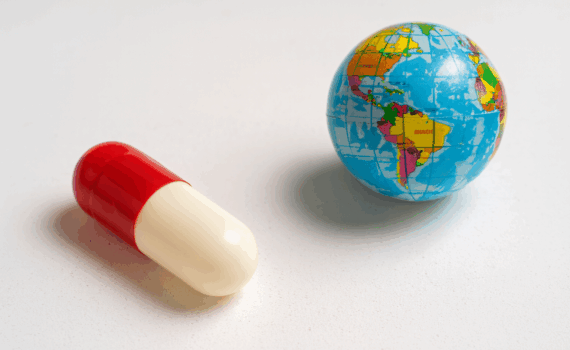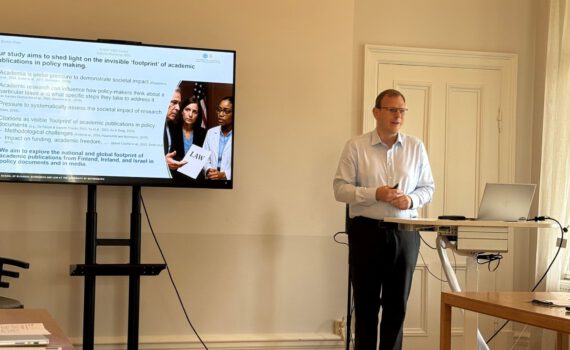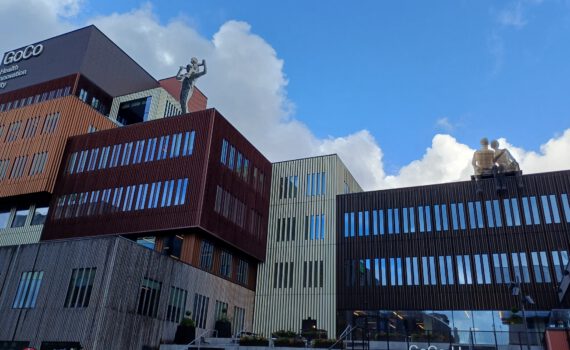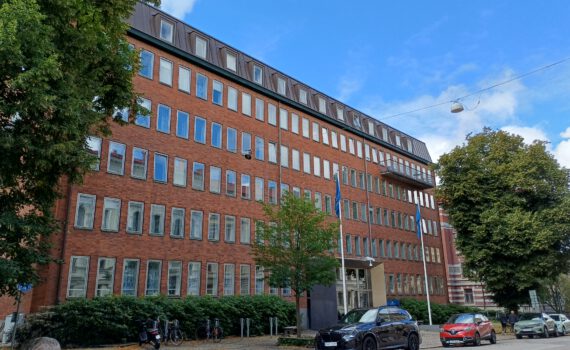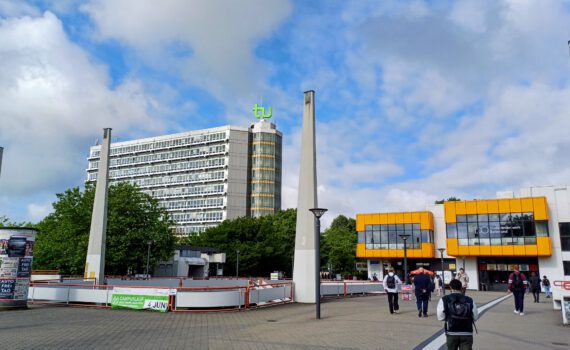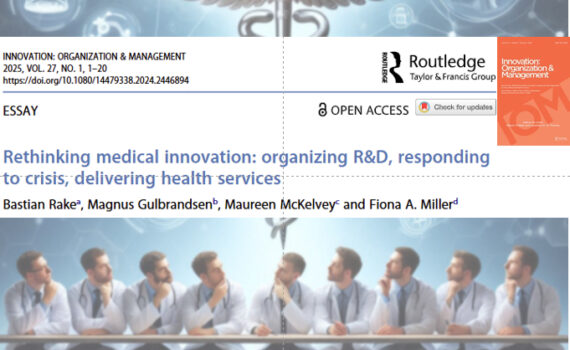It was great to present joint work with Kaushik Sengupta, Myriam Vilasco Gamberoni, and Maureen McKelvey on AstraZeneca’s research collaborations with French academia at this year’s edition of the Workshop on Medical Innovation and Healthcare (WOMI) in Valencia. As in every WOMI over the last 15 years, we had very engaging […]
I am grateful for the opportunity to advance my research on repurposing innovation through a grant from the Adlerbert Research Foundation. The project “𝘙𝘦𝘱𝘶𝘳𝘱𝘰𝘴𝘪𝘯𝘨 𝘋𝘳𝘶𝘨𝘴: 𝘍𝘳𝘪𝘦𝘯𝘥 𝘰𝘳 𝘍𝘰𝘦 𝘧𝘰𝘳 𝘚𝘶𝘴𝘵𝘢𝘪𝘯𝘢𝘣𝘭𝘦 𝘏𝘦𝘢𝘭𝘵𝘩𝘤𝘢𝘳𝘦 𝘋𝘦𝘷𝘦𝘭𝘰𝘱𝘮𝘦𝘯𝘵?” studies whether and to what extent existing medicines are repurposed, i.e. used in disease areas other than the […]
It was a great please to present my joint work with Olga Ryazanova and Peter McNamara – who are both former colleagues from Maynooth University – on the use of academic research in policy documents across disciplines in three small advanced economies. We got very good comments and feedback on […]
On 16 September 2025, I spent a very interesting day with delegates from Texas, academic colleagues, and students from our MSc programme in Knowledge-based Entrepreneurship at AstraZeneca’s Gothenburg site, its BioVentureHub, and the GoCo Health Innovation City. We learned a lot about the innovation ecosystems and the collaborative cultures among […]
Maynooth University had been my academic home for more than eight years. During this time, I had the opportunity to advance my research, to develop the innovation-related curriculum at the School of Business, and to contribute to the development of the PhD programme and the School’s Strategic Plan. It has […]
I was delighted to present joint research with Paola Zappa from University College London’s Global Business School for Health at the R&D Management Conference 2025, held this year in the beautiful city of Pisa, Italy. Our paper, titled “Team Diversity and Success in Collaborative Research: Empirical Evidence from Grant Proposals […]
During this year’s Eu-SPRI Conference at TU Dortmund, I had the chance to present joint work with Olga Ryazanova and Peter McNamara on “Understanding relative trends in research use by policymakers: Comparative analysis of three small advanced economies.” We conduct this study as part of our Research Ireland/SFI-funded research project […]
Our editorial article with Magnus Gulbrandsen, Maureen McKelvey, and Fiona A. Miller accompanying the special issue on “Rethinking Medical Innovation: Organizing R&D, Responding to Crisis, Delivering Health Services” in Innovation: Organization & Management is now online (as open access article). In this piece, we elaborate on the specific characteristics of […]
It was a great pleasure to visit my alma mater – the Friedrich Schiller University in Jena, Germany – on 19th of June 2024 to present joint work with Sabrina Vieth (Solen University). I presented a mixed method study in which we explore collaboration patterns as well as the motivation […]
It was a great pleasure to visit Gothenburg (Sweden) again for the 20th Conference of The International Joseph A. Schumpeter Society in June 2024. I enjoyed being involved into the PhD Student Event where students had the chance to discuss their research with established scholars and to obtain career advice. […]
